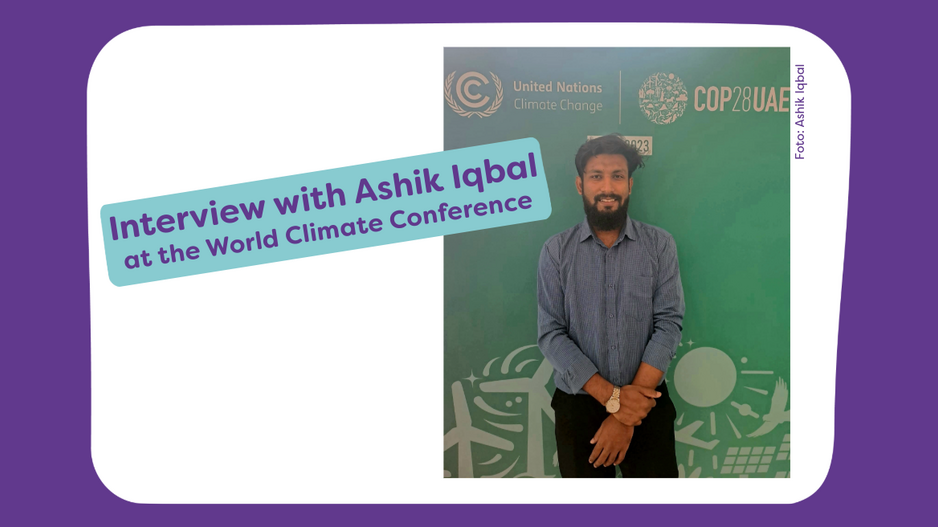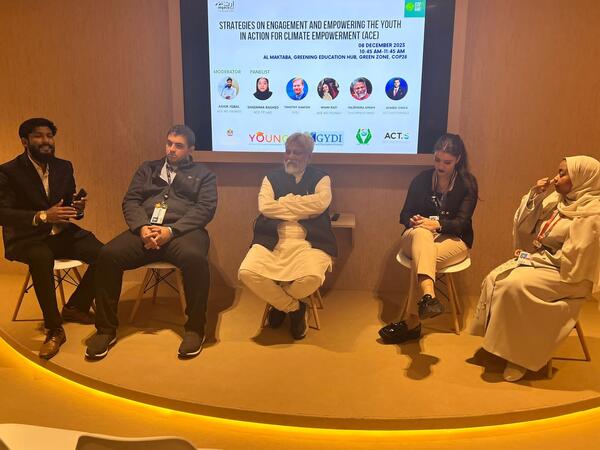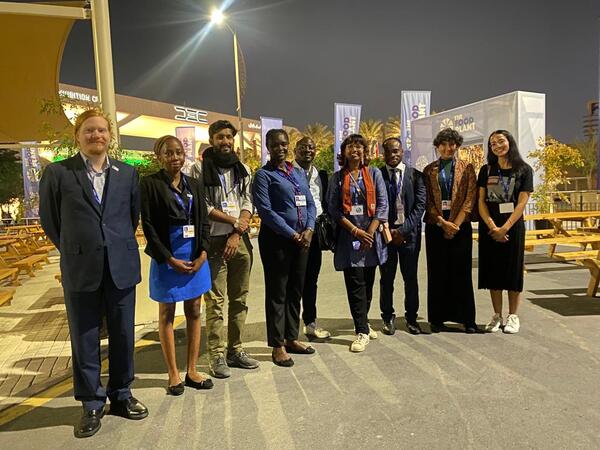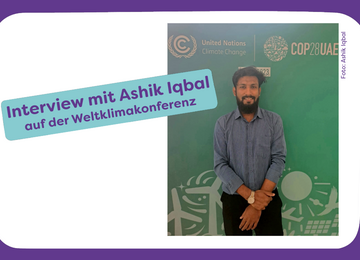Interview with a member of the ACE working group YOUNGO
I had the chance to ask Ashik Iqbal what happened with ACE at this year's World Climate Conference. But first I wanted to find out a bit more about him:
Karo: Hello Ashik! Please introduce yourself briefly and tell us why you are involved with ACE as a climate activist.
Ashik: "Hello and thank you for giving me the opportunity to share my experiences from the COP. I am Ashik Iqbal from Bangladesh, working as a Research Associate at the Institute of Water and Flood Management (IWFM), Bangladesh University of Engineering and Technology (BUET). Since April 2021, I am an active member of the ACE working group YOUNGO, which is the youth representation of the UNFCCC. I am involved in ACE because I want to share the technical knowledge I have generated as a scientist in the field of water and flooding with people who need it in the climate crisis. ACE and its six elements align with all my interests."
Karo: What happened at the ACE negotiations at COP28?
Ashik: "During the negotiations over the last few years, many points were written down in the 4-year action plan and in the Glasgow work Program on ACE. What remained unresolved was the financing of these commitments, which was the main topic of the negotiations at COP28. The only strange thing is that many of the parties' demands - above all education - are very popular, but when it comes to financing these projects, no one wants to commit. No commitments were made at this COP. The G77 countries were even very willing to compromise, but the results of negotiations were always blocked by some industrialized countries. Accordingly, no agreement was reached between the parties and therefore no final text was produced for ACE. The negotiations came to a halt after the first week and were postponed to the climate negotiations in Bonn in summer 2024 (so-called "Subsidiary Bodies", SBs). That was very disappointing."
K: Despite the short and inconclusive negotiations, what do you take away from them?
A: "Although the negotiations ended without a result, I am taking some positive things away from them. There was much more room for side events, which are very fruitful for networking and future collaboration. There were even five ACE side events on one day. The second week of the COP in particular is usually dominated by negotiations, which limits participation in side events and networking opportunities. However, we had time for this and the youth at ACE were also able to participate very actively in the side events and help shape and organize them. Cooperation with the youth in general and in the upcoming negotiations is essential to shape a sustainable future in the climate crisis!"
K: How did you perceive the topic of education and youth at COP28 and how present was ACE?
A: "There was an extra theme day at the COP on "Youth, Children, Education and Skills". ACE organized most of the side events on this day, as the content mainly fits in with the ACE areas. ACE also organized events at the COY youth conference. The focus of the theme day was on various educational projects on climate change and strategies to spread education to enrich people around the world. In general, young people are very present in ACE - the ACE YOUNGO working group has around 500 young people as active members."
K: What were your favourite ACE events at COP28?
A: "As the negotiations didn't come to a decision, I didn't have a favourite event. What I did like very much, however, was the ACE Networking Breakfast, where a wide variety of people came together and there was a lot of intensive exchange! That was very valuable for future collaboration. I also really enjoyed the event "Strategies on engagement and empowering youth in ACE", which took place directly after the unsuccessful negotiations and which I moderated. Very fruitful discussions took place with the energy that was still pent up and it showed once again how important young people are in shaping a better future."
K: What will happen at ACE after COP28 and what are your plans for it?
A: "The inconclusive negotiations have shown that more action is now needed to ensure that the issue of financing does not fall by the wayside. To this end, a kind of "market place" is to be set up where ACE members can network with investors in order to generate funding for projects. I also think it's now time for young people to speak up and draw attention to the issue of financing. The advantage of us young members of ACE is that we are independent of organizations and do not have to fear that our actions will have consequences for our work. That's why we, but also all ACE members, must now speak up and remind people every day from now until the Bonn climate negotiations in the summer that the issue is on the agenda. We can't wait until COP29 for this!"
K: And finally, as a climate activist from the Global South, how did you perceive the COP28 and what do you think of the main outcomes?
A: "The fact that the Loss and Damage Fund has now been operationalized after a long period of negotiations is very important for the Global South and climate vulnerable countries like Bangladesh. Because we are the countries that suffer from the damage and losses. What we need above all is money to pay for them. However, the mechanism around the Loss and Damage Fund is not yet developed and it alone is not enough. We are suffering from the actions of the global North and we need the money. Hopefully this will be decided in the upcoming negotiations."
K: Thank you very much for this interesting interview!




Schreibe einen Kommentar